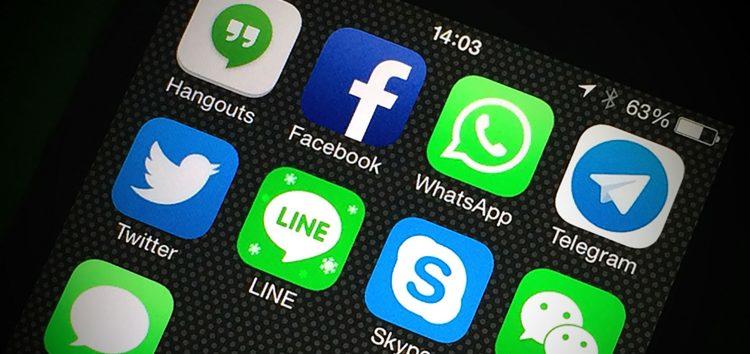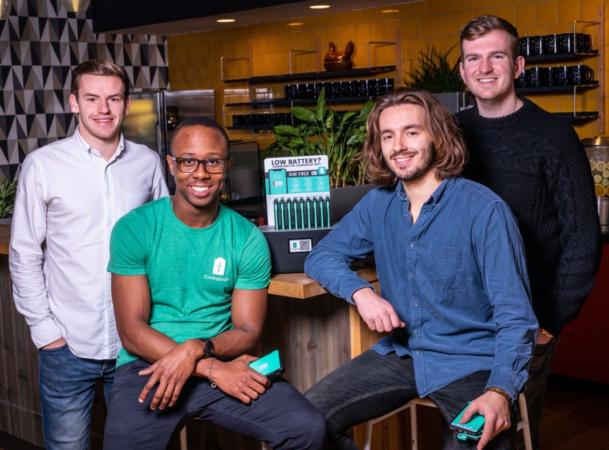All results

When worldwide lockdowns began, one of the first things to close were hair salons. But what if you had a mobile barbershop that came to you to give you a haircut — a barbershop that was fully “COVID-compliant,” that would pull up at or near your home, and still deliver quality service? TRIM-IT founder Darren Tenkorang probably didn’t envision a pandemic shutting down the world when he first founded his mobile barbershop company. In fact, he told Forbes that his initial idea was simply to create an app that would dispatch a barber on demand — like Uber or Lyft, but for haircuts. Then he realized that the customer service — and accountability — still left much to be desired. So he stepped up his game by renovating the back of a van to make it look like a salon, painted the van with his logo, and his idea was truly able to take off. Even before COVID-19 closed down the outside, people were using the app to book mobile barbershop appointments at their home, their office, and even their...

Headlines are sweeping with coronavirus concerns, cancellations, and precautions. While people are self-quarantining for their own safety, Senegal is taking the lead on providing rapid diagnostic tests for the virus. CNN reported that Senegal has partnered with a U.K.-based laboratory called Mologic to develop hand-held tests for coronavirus that produces results in only ten minutes. “This will be the first handheld diagnostic kit collaboratively developed in the UK and jointly manufactured in Africa,” Mologic said in a statement . They also shared in their statement that these rapid tests will be especially beneficial in low-income countries where accuracy for testing has proven to be a challenge. “Rapid detection of the virus is important to stop its spread — we are pleased that the UK government has acknowledged this, supporting Mologic and the work of our partners to prevent further outbreaks internationally,” Mologic Medical Director Joe Fitchett said. CNN also reported the...

A new U.K. government report has found that big tech companies — like Amazon, Google, and Facebook — are in need of some serious new antitrust rules. Commissioned by Britain’s finance minister, the Digital Competition Expert Panel’s report pushes back against the idea that digital platforms produce “natural monopolies.” Instead, the report points out how big tech companies are stifling competition and innovation, calling for the U.K.’s laws to be “updated for the digital age” because competition among digital platforms is “not only necessary but also possible.” Jason Furman, former chief economic advisor to Barack Obama, chaired the group behind the report. He told CNBC , “The digital sector has created substantial benefits but these have come at the cost of increasing dominance of the few companies which is limiting competition and consumer choice and innovation.” Take some of the recent mergers in big tech as an example — Amazon now owns WholeFoods plus Facebook acquired both...

The far-right founder of the English Defence League, Tommy Robinson, has officially been banned from both Facebook and Instagram. In a blog post, Facebook said Tommy Robinson, whose real name is Stephen Yaxley-Lennon, broke community standards by engaging in “organized hate.” “Tommy Robinson’s Facebook Page has repeatedly broken these standards, posting material that uses dehumanizing language and calls for violence targeted at Muslims,” Facebook wrote. “He has also behaved in ways that violate our policies around organized hate. As a result, in accordance with our policies, we have removed Tommy Robinson’s official Facebook Page and Instagram profile.” Facebook went on to say, “This is not a decision we take lightly, but individuals and organizations that attack others on the basis of who they are have no place on Facebook or Instagram.” Robinson’s Facebook ban comes almost an entire year after Twitter permanently removed his account . Now, Robinson will have to rely on YouTube as...

ChargedUp, the mobile charging business based in the U.K., just closed its seed funding round with £1.2 Million, the equivalent of more than $1.5 million, according to TechCrunch. The company’s business model is fairly similar to bike and scooter-sharing app — customer’s download the app, scan a QR code at the charging station to retrieve a battery, take the battery to charge their phones and return the battery to any ChargedUp stations in their area. “Since launch, we have delivered over 1 million minutes of charge across the network, and our customers love the service,” CEO and Co-Founder Tilmouth said to TechCrunch. “Like the sharing scooter and bike companies, we operate a time-based model. We simply charge our users a simple price of 50p per 30 mins to charge their phones. We also make revenue from the advertising space both on our batteries and within our app.” Tilmouth, along with Charlie Baron, Hakeem Buge and Forrest Skerman Stevenson created ChargedUp in 2017. The...